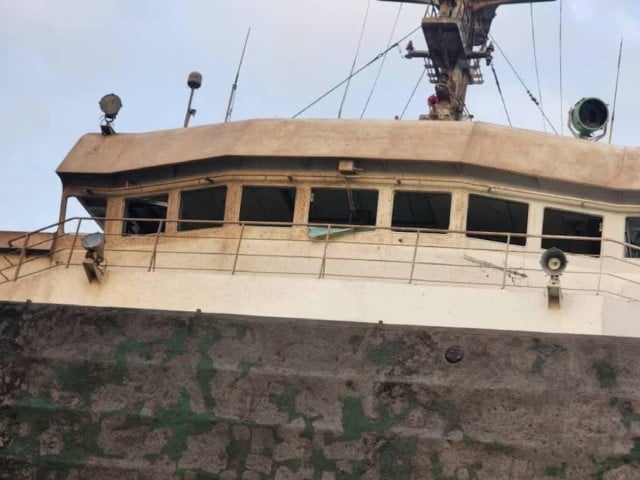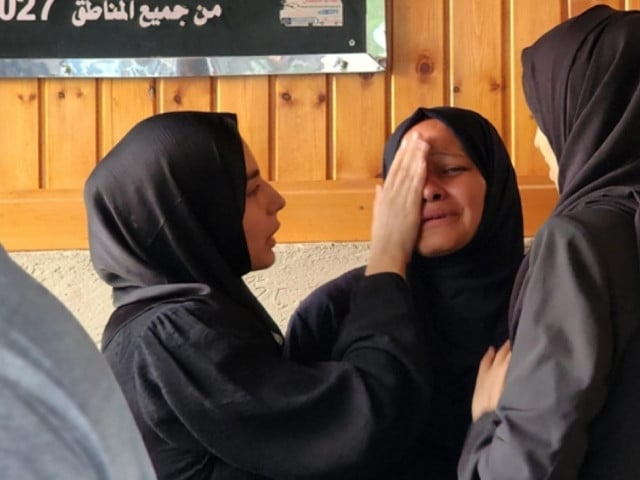
A Russian missile hit a Palau-flagged vessel in Ukraine’s southern port of Odesa on Monday, killing a Ukrainian national and injuring five crew members in the second such attack in as many days, Ukrainian officials said.
Ukrainian Foreign Minister Andriy Sybiha called Russia's attacks on Black Sea shipping a "deliberate terrorist tactic."
"By attacking civilian vessels, Russia tries to weaken Ukraine's economy and put millions around the world at risk of hunger. We must join forces of all responsible states and organizations to stop the aggressor, ensure freedom of navigation in Black Sea and global food security," he wrote on X.
The vessel targeted in the latest attack, identified as the Optima, had docked in Odesa only hours before the missile hit.
Odesa’s regional governor, Oleh Kiper, confirmed that the individual killed was a Ukrainian national working at the port, while the injured crew members were foreign nationals.
Specific details about the victims’ nationalities have not yet been released, but it has been confirmed that they were part of the ship's crew.
Ukrainian officials condemned the strike as part of a broader Russian effort to destabilise the region and disrupt Ukraine’s ability to export agricultural products, which are critical to the global food supply.
Ukrainian Foreign Minister Andrii Sybiha expressed outrage over the attacks in a statement on X (formerly Twitter). Without providing extensive details about the condition of the damaged ships, he called on the international community to take immediate action to ensure freedom of navigation in the Black Sea.
“We must unite the efforts of all responsible nations and organizations to safeguard global food security and maintain safe passage for vessels in the region,” Sybiha urged.
Monday’s attack follows another missile strike on Sunday, October 6, which damaged the Saint Kitts and Nevis-flagged cargo ship Paresa in the nearby port of Pivdennyi.
The Paresa, carrying 6,000 tonnes of corn, was severely damaged, though its 15-member crew, consisting of Syrian and Egyptian nationals, fortunately escaped injury. Ukraine’s Ministry for Restoration reported that the Paresa is now the 20th civilian vessel to be damaged by Russian missile strikes since the war began.
Deputy Prime Minister Oleksiy Kuleba, speaking about the attacks, stressed that Russia’s continued strikes on grain-export vessels are a calculated effort to destroy shipping in the Black Sea, threatening not just Ukraine’s economy but global food security as well.
“By targeting grain vessels, Russia is deliberately attempting to create instability in regions heavily reliant on food imports, exacerbating tensions in international relations and sparking potential food crises,” Kuleba said.
These recent attacks are part of a broader Russian strategy to disrupt Ukraine's grain export industry, a sector that has become increasingly vital as the war grinds on.
Since Russia’s full-scale invasion of Ukraine in February 2022, the port city of Odesa has been a frequent target of Russian missile strikes due to its strategic importance as a hub for agricultural exports.
Ukraine, known as one of the world’s top grain exporters, plays a crucial role in supplying food to many countries in Africa, the Middle East, and other regions highly dependent on imported grain.
The Russian missile campaign, aimed at undermining Ukraine’s economic lifelines, has sparked significant concern among global leaders.
Last month, another Saint Kitts and Nevis-flagged vessel, the bulk carrier Aya, was struck by a Russian missile in the Black Sea, causing extensive damage.
In a separate incident, an Antigua-flagged vessel was hit in Odesa, further emphasizing the increasing dangers faced by commercial ships operating in the region.
Despite repeated attacks, Russia has consistently denied targeting civilian vessels, maintaining that its military operations are focused solely on Ukraine’s defense infrastructure.
However, the pattern of strikes on grain-export vessels and ports tells a different story, with international experts warning of the growing risks to global food chains.
Since the collapse of the Black Sea Grain Initiative in July 2023, which had temporarily ensured safe passage for Ukrainian agricultural exports, Russia has intensified its blockade of Ukraine’s shipping routes, effectively severing much of the country’s access to global markets.
The potential consequences of these continued strikes are far-reaching.
Disruptions to Ukraine’s grain exports are likely to have a ripple effect across global food markets, particularly in developing nations that rely heavily on Ukrainian agricultural products.
Rising food prices and shortages could lead to increased political instability in these regions, potentially triggering new crises on top of those already created by the war in Ukraine.
As the conflict enters its third year, the international community faces mounting pressure to find solutions that protect critical shipping lanes and ensure the continuation of Ukraine’s agricultural exports.
Ukraine’s government has repeatedly called for stronger international intervention, urging Western nations and organizations to implement more effective measures to prevent Russia from further attacking civilian vessels.
With Monday’s missile strike, the number of civilian vessels damaged by Russian attacks in the Black Sea has continued to rise, highlighting the escalating risks faced by those involved in Ukraine’s maritime trade.
As grain ships remain in the crosshairs of Russian missiles, the need for coordinated global action to protect these routes has never been more urgent.
Previously, Ukrainian drone attack on Russia's Belgrod region resulted in at least four people killed and 24 injured.
The incident occurred overnight, marking a significant escalation in the ongoing conflict between the two countries as commented on by Vyacheslav Gladkov, the governor of Belgorod.
Russia’s continued missile strikes on Ukraine’s ports, and the resulting threat to global food security, mark a dangerous new phase in a conflict that shows no signs of abating.

1726739452-0/Express-Tribune-Web-(10)1726739452-0-165x106.webp)


1728386780-0/BeFunky-collage-(38)1728386780-0-165x106.webp)















COMMENTS
Comments are moderated and generally will be posted if they are on-topic and not abusive.
For more information, please see our Comments FAQ